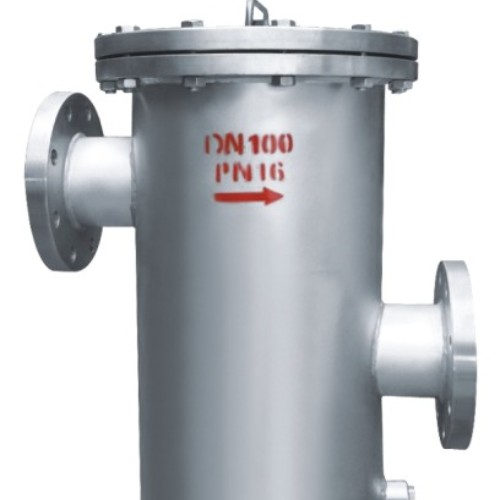needle valve stainless steel
Understanding Needle Valves A Focus on Stainless Steel Variants
Needle valves are critical components in various industrial applications where precise flow control is essential. Designed for accuracy, these valves operate much like a conventional valve but are distinguished by their slender, needle-like plunger that allows for fine adjustments. Among the different materials used to manufacture needle valves, stainless steel is particularly noteworthy due to its durability and resistance to corrosion, making it an ideal choice for many demanding environments.
What is a Needle Valve?
A needle valve is a type of valve that features a small port and a threaded, needle-like plunger that can be raised or lowered to adjust the flow of fluids—liquids or gases. This design allows for an incredibly fine control over the fluid flow, which is crucial in applications where precise measurements and adjustments are required. Unlike regular valves, which may allow for larger flow volumes but less precision, needle valves excel in settings where regulation is paramount.
Applications of Stainless Steel Needle Valves
Stainless steel needle valves are used across various industries due to their robust properties. Common applications include
1. Oil and Gas In the oil and gas industry, needle valves are often utilized in pressure instrumentation and sampling lines, where precise flow measurement is vital.
2. Chemical Processing The chemical sector frequently employs stainless steel needle valves for handling corrosive substances. Stainless steel's resistance to chemicals helps maintain integrity and prolong the lifespan of the valve.
3. Water Treatment Needle valves can be found in water treatment facilities, where they manage the flow of water through various filtration and treatment processes.
4. Pharmaceuticals In pharmaceutical manufacturing, precise dosages are crucial. Stainless steel needle valves ensure that the correct amount of fluid is dispensed during production processes.
5. HVAC Systems These valves control fluid flow in heating, ventilation, and air conditioning systems, aiding in temperature regulation and system efficiency.
Advantages of Stainless Steel Needle Valves
Choosing stainless steel for needle valves presents several advantages
- Corrosion Resistance Stainless steel is inherently resistant to rust and corrosion, which is particularly beneficial in harsh environments and for applications involving aggressive fluids
.- High Strength Stainless steel offers superior strength compared to other materials, meaning it can withstand higher pressures and temperatures.
needle valve stainless steel

- Longevity The durability of stainless steel ensures that needle valves have a longer lifespan, which can lead to reduced replacement costs and downtime.
- Cleanliness Stainless steel is easy to clean and maintain, crucial in industries like pharmaceuticals and food processing where hygiene is a top priority.
Types of Stainless Steel Used
The most common grades of stainless steel used for needle valves include 304 and 316.
- 304 Stainless Steel This is a versatile and widely used grade that provides good corrosion resistance and is suitable for various applications in mild environments.
- 316 Stainless Steel This grade offers superior resistance, particularly against chlorides and other corrosive materials. It's often used in marine environments or where chemicals may degrade other materials.
Installation and Maintenance Tips
To ensure optimal performance and longevity, proper installation and maintenance of stainless steel needle valves are essential. Here are some tips
1. Proper Installation Ensure that the valve is installed correctly in line with the flow direction indicated on the valve body. Over-tightening can cause damage; thus, use appropriate torque settings.
2. Regular Inspection Periodically check for signs of wear, corrosion, or leaks, particularly in environments prone to contamination or corrosion.
3. Cleaning Keep the valve clean, especially in industries requiring high purity. A regular cleaning schedule can help maintain performance.
4. Calibration In applications where precise measurements are critical, regular calibration of the needle valve's flow settings may be necessary.
Conclusion
Stainless steel needle valves play a vital role in a variety of industrial applications that demand precision and reliability. Their robust properties, including excellent corrosion resistance and high durability, make them an ideal choice for controlling fluid flow in challenging environments. Understanding their applications, advantages, and maintenance needs is crucial for anyone working in industries that rely on these integral components. As technology advances and industries evolve, the role of needle valves will undoubtedly continue to be significant in ensuring efficient and effective fluid management.
-
The Key to Fluid Control: Exploring the Advantages of Ball Valves in Industrial SystemsNewsJul.09,2025
-
The Versatile World of 1, 2, and 3 Piece Ball ValvesNewsJul.09,2025
-
Stainless Steel Ball Valves: The Ideal Choice for Efficient Flow ControlNewsJul.09,2025
-
Optimizing Fluid Control with Ball Float ValvesNewsJul.09,2025
-
Manual Gate Valves: Essential for Control and EfficiencyNewsJul.09,2025
-
Everything You Need to Know About Butterfly ValvesNewsJul.09,2025
-
The Versatility of Wafer Type Butterfly ValvesNewsJul.08,2025




